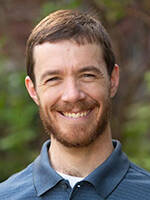By Zack Fields
World leaders are meeting in Glasgow, Scotland, half a world away. Many of the issues debated in that conference — emissions from developing countries, deforestation in the Amazon, are equally distant from our state. Yet Alaska more than any other state needs this climate conference to be successful, and for world leaders to adopt aggressive and binding goals to mitigate the worst of the climate crisis.
Make no mistake: We cannot “avoid” climate change. I remember talking with subsistence hunters on St. Lawrence Island more than five years ago, who said they first noticed the retreat of sea ice and impacts on walrus hunts in 1957. Southeast Alaska fisheries have already been decimated by warming seas and depleted oxygen levels. This year’s “heat dome,” in which temperatures well above 100 degrees literally cooked shellfish in Pacific Northwest waters, was a grave warning of things to come for our state and our nascent shellfish industries, if the world doesn’t get its act together and dramatically reduce emissions.
For too many years, the media treated climate change as a phenomenon that primarily affects glaciers and polar bears. Nope. Our resource-based economy is intimately connected to temperatures and carbon concentration in our waters. Our tourism-based economy depends on stable and functioning ecosystems. Yet the climate is changing so fast that it’s setting loose landslides that are closing the park road in Denali, and threaten unprecedented landslides and tsunamis in Prince William Sound. The ice road season for oil development is shrinking fast, and widespread permafrost melt is adding to costs for state agencies, homeowners, and private business owners from Bethel to Glennallen.
In the national media, climate issues are sometimes treated as a resources versus conservation question. As Alaskans, we know this simply isn’t accurate. We need work maintaining the trans-Alaska pipeline, exploring for and developing oil in the Arctic, subsistence and commercial fishing from Norton Sound to Southeast, and operating the myriad private businesses that depend on Alaska’s large and diverse tourism industry.
Alaska’s conventional oil fields have far lower carbon intensity than the oil sands of Canada or Texas’ shale fields. We can and will continue to produce oil — profitably — while our transportation sector integrates electric vehicles at an unprecedented scale.
It would be a false choice to suggest we must abandon certain jobs or industries in Alaska to reach the greenhouse gas reduction targets world leaders are negotiating now. For Alaska’s diverse economy to grow sustainably, we need a stable climate, which in turn requires sharp reductions in global emissions.
Are such reductions possible? Absolutely, and many of the innovations that prove change is possible have been pioneered in our state. Kodiak began transitioning to nearly 100% renewable energy 20 years ago.
State Rep. Zack Fields is a Democratic representative for District 20 in Anchorage.

